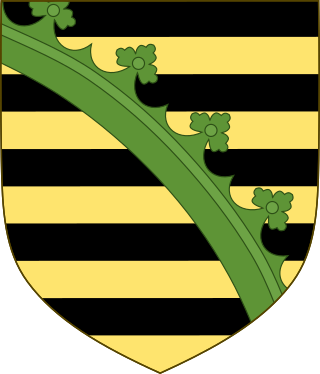
The House of Wettin was a dynasty of German kings, prince-electors, dukes, and counts that once ruled territories in the present-day German states of Saxony, Saxony-Anhalt and Thuringia. The dynasty is one of the oldest in Europe, and its origins can be traced back to the town of Wettin, Saxony-Anhalt. The Wettins gradually rose to power within the Holy Roman Empire. Members of the family became the rulers of several medieval states, starting with the Saxon Eastern March in 1030. Other states they gained were Meissen in 1089, Thuringia in 1263, and Saxony in 1423. These areas cover large parts of Central Germany as a cultural area of Germany.
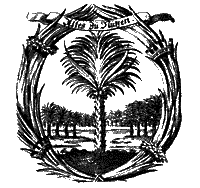
The Fruitbearing Society was a German literary society founded in 1617 in Weimar by German scholars and nobility. Its aim was to standardize vernacular German and promote it as both a scholarly and literary language, after the pattern of the Accademia della Crusca in Florence and similar groups already thriving in Italy, followed in later years also in France (1635) and Britain.
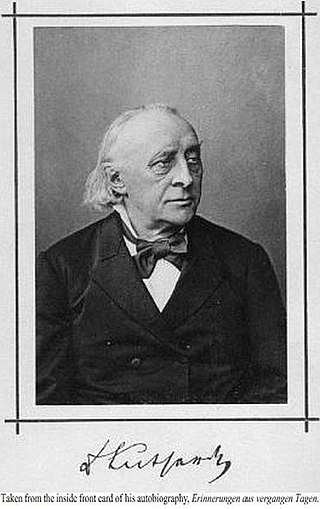
Christoph Ernst Luthardt, was a conservative German Lutheran theologian, Biblical commentator and Christian apologist. He was born in Maroldsweisach, Bavaria.

Neustadt am Rübenberge is a town in the district of Hannover, in Lower Saxony, Germany. At 357 km2 (138 sq mi), it is the 9th largest settlement in Germany by area, though only about 45,000 inhabitants live there. It is in a region known as the Hanoverian Moor Geest.
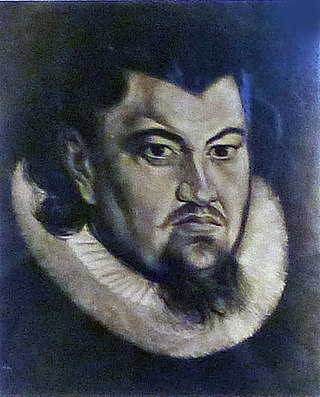
Nikolaus Krell, chancellor of the elector of Saxony, was born at Leipzig, and educated at the university of his native town.

Ernst August, Hereditary Prince of Hanover is the eldest child of Ernst August, Prince of Hanover, and his first wife Chantal Hochuli. Due to his father's second marriage, he is also the stepson of Caroline, Princess of Hanover, a Monegasque Princess and the sister of Albert II of Monaco.

Louis VI of Hesse-Darmstadt was Landgrave of Hesse-Darmstadt from 1661 to 1678.

Christoph Rothmann was a German mathematician and one of the few well-known astronomers of his time. His research contributed substantially to the fact that Kassel became a European center of the astronomy in the 16th century.

Georg Albrecht of Saxe-Weissenfels, Count of Barby, was a German prince of the House of Wettin and the last count of Barby.
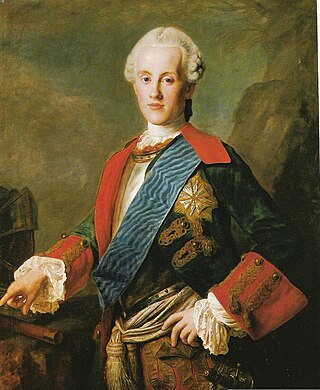
Prince Karl Christian Joseph of Saxony - in English, Charles of Saxony - was a German prince of the House of Wettin and Duke of Courland and Semigallia. Born in Dresden, he was the fifth son of Augustus III, King of Poland and Elector of Saxony, and Maria Josepha of Austria. He is an ancestor of the Italian House of Savoy.
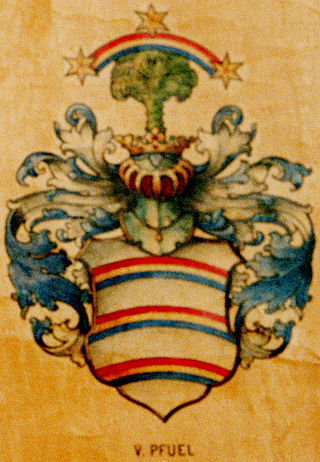
The ancient German noble family of Pfuel arrived in Brandenburg in the year 926 and later widened their influence to Saxony, Saxony-Anhalt, Mecklenburg, Pomerania, Württemberg, Westphalia, Eastern Europe and Sweden.

Lake Senftenberg is an artificial lake in Landkreis Oberspreewald-Lausitz, Brandenburg, Germany. It is located in the Lusatian Lake District, a chain of artificial lakes. The lake is located on the border of Lower and Upper Lusatia between the southern Brandenburg city of Senftenberg and its districts Niemtsch and Großkoschen. Lake Senftenberg is one of the largest artificial lakes in Germany with an area of 1300 hectares.

Paul Luther was a German physician, medical chemist, and alchemist. He was the third son of the German Protestant Reformer Martin Luther and was successively physician to John Frederick II, Duke of Saxony; Joachim II Hector, Elector of Brandenburg; Augustus, Elector of Saxony and his successor Christian I, Elector of Saxony. He taught alchemy to Anne of Denmark.
Johann Georg of Hohenzollern-Hechingen was the first Prince of Hohenzollern-Hechingen.

The Veste Coburg is one of the best-preserved medieval fortresses of Germany. It is situated on a hill above the town of Coburg, in the Upper Franconia region of Bavaria.
Götz Freiherr von Houwald was a German diplomat, historian, and ethnographer. He was born in Posen and died in Bonn. His full name was Maximilian Otto Gustav Albrecht Hubert Wilhelm Götz-Dieter Freiherr von Houwald. Götz-Dieter von Houwald's parents were Albrecht Freiherr von Houwald and Helene Gräfin von Carmer.
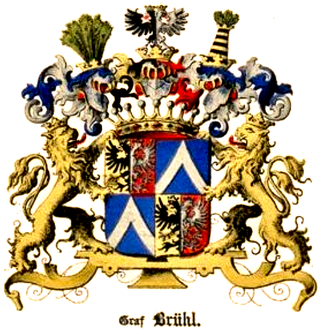
The Brühl family is an old German noble family from Saxony-Thuringia, with their ancestral seat in Gangloffsömmern in Thuringia. Branches of the family still exist today.

August Buchner was a German philologist, poet and literary scholar, an influential professor of poetry and rhetoric at the University of Wittenberg.

Johann Jakob Fugger or Hans Jakob Fugger was a German banker and patron of the arts and sciences from the von der Lilie line of the noted Fugger banking family.

















